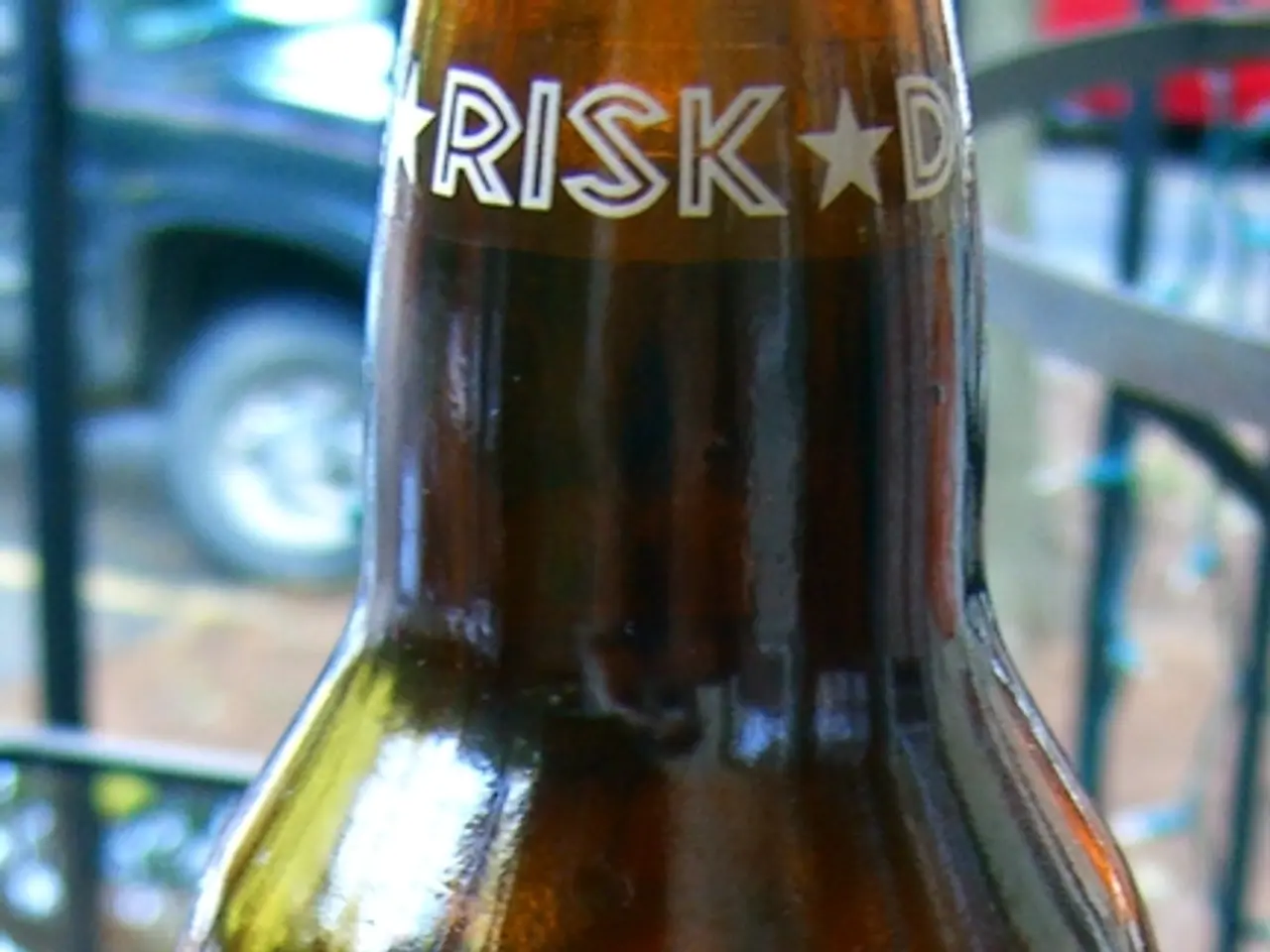Dutch authority on gambling issues alerts about three companies in the gambling sector
The Dutch Gambling Authority (Kansspelautoriteit, KSA) has issued warnings to licensed gambling companies, urging them to align their operations with the Wwft (Wet ter voorkoming van witwassen en financiering van terrorisme), Dutch anti-money laundering (AML) guidelines [1]. However, the KSA has yet to fully release these guidelines, providing only known information to the industry [2].
The Wwft is a crucial component of the Dutch Gambling Authority's strategy in combating illegal gambling. Under the Wwft, licensed companies are required to implement a comprehensive AML framework, which includes Customer Due Diligence (CDD), a risk-based approach, source of funds verification, ongoing transaction monitoring, reporting requirements, internal policies, coordinated control measures, and more [3].
Despite achieving a high level of channelization (over 90%), the Dutch market is still struggling to contain the gross gaming revenue within the country [4]. The KSA has identified systemic weaknesses across the industry, including failure to properly scrutinize players' funds, inconsistent risk classification, and inadequate adjustment of monitoring measures [1][2][3].
To improve Wwft compliance, licensed gambling companies should enhance player due diligence, implement robust risk classification frameworks, strengthen transaction monitoring systems, regularly update and train staff, maintain comprehensive documentation and audit trails, respond swiftly to regulatory feedback and warnings, and engage with KSA resources [1][2][3][4].
Non-compliance risks significant penalties, ranging from warnings and fines to license suspension or criminal action [2][3][4]. The KSA has already sanctioned three licensed companies under the Money Laundering and Terrorism Financing Prevention Act (Wwft) [5].
The Dutch Gambling Authority conducted a careful investigation into these companies, analyzing internal documents and player files, and revealed faults and deficiencies in their Wwft compliance [6]. The Authority has also identified shortcomings in the risk classification of players and the coordination of measures accordingly [6].
Each company licensed to operate under Dutch law must track suspicious transactions and report them under the Wwft [7]. The Dutch Gambling Authority previously hosted a webinar in 2024 to help operators and local gambling entities catch up with Wwft requirements [8].
In an effort to further combat illegal gambling, the Dutch market introduced an expanded ban on gambling advertisements on July 1, 2025 [9]. The companies in question won't face immediate enforcement action, but they may be subject to more severe sanctions if they fail to uphold Wwft guidelines in another inspection [10].
References:
[1] Dutch Gambling Authority (2022). Kansspelautoriteit waarschuwt bedrijven om Wwft-eisen na te komen. Retrieved from https://www.kansspelautoriteit.nl/nieuws/kansspelautoriteit-waarschuwt-bedrijven-om-wwft-eisen-na-te-komen
[2] Dutch Gambling Authority (2022). Wwft-richtlijnen voor kansspelbedrijven nog niet volledig gepubliceerd. Retrieved from https://www.kansspelautoriteit.nl/nieuws/wwft-richtlijnen-voor-kansspelbedrijven-nog-niet-volledig-publiceerbaar
[3] Dutch Gambling Authority (2022). Wwft-eisen voor kansspelbedrijven versterkt. Retrieved from https://www.kansspelautoriteit.nl/nieuws/wwft-eisen-voor-kansspelbedrijven-versterkt
[4] Dutch Gambling Authority (2022). Kansspelmarkt Nederland: nog steeds te veel omzet buiten land. Retrieved from https://www.kansspelautoriteit.nl/nieuws/kansspelmarkt-nederland-nog-steeds-te-veel-omzet-buiten-land
[5] Dutch Gambling Authority (2022). Kansspelautoriteit sanctioneert drie bedrijven onder Wwft. Retrieved from https://www.kansspelautoriteit.nl/nieuws/kansspelautoriteit-sanctioneert-drie-bedrijven-onder-wwft
[6] Dutch Gambling Authority (2022). Kansspelautoriteit onthult fouten en tekortkomingen bij drie bedrijven. Retrieved from https://www.kansspelautoriteit.nl/nieuws/kansspelautoriteit-onthult-fouten-en-tekortkomingen-bij-drie-bedrijven
[7] Dutch Gambling Authority (2022). Kansspelbedrijven verplicht tot opsporing van verdenkelijke transacties. Retrieved from https://www.kansspelautoriteit.nl/nieuws/kansspelbedrijven-verplicht-tot-opsporing-van-verdenkelijke-transacties
[8] Dutch Gambling Authority (2024). Kansspelautoriteit organiseert webinar over Wwft-eisen. Retrieved from https://www.kansspelautoriteit.nl/nieuws/kansspelautoriteit-organiseert-webinar-over-wwft-eisen
[9] Dutch Government (2025). Uitbreiding reclameverbod kansspelen ingegaan. Retrieved from https://www.government.nl/nieuws/uitbreiding-reclameverbod-kansspelen-ingegaan
[10] Dutch Gambling Authority (2025). Kansspelautoriteit waarschuwt bedrijven voor nieuwe sancties. Retrieved from https://www.kansspelautoriteit.nl/nieuws/kansspelautoriteit-waarschuwt-bedrijven-voor-nieuwe-sancties
- The gambling industry must adhere to the Dutch anti-money laundering guidelines (Wwft) in order to maintain their licenses.
- The Dutch Gambling Authority (KSA) has yet to release a comprehensive set of Wwft guidelines for the gambling sector.
- Under the Wwft, licensed gambling companies must implement a comprehensive Anti-Money Laundering (AML) framework, including Customer Due Diligence (CDD) and ongoing transaction monitoring.
- The Dutch gambling market is experiencing issues in containing gross gaming revenue within the country, despite achieving a high level of channelization.
- Systemic weaknesses across the industry include failure to properly scrutinize players' funds, inconsistent risk classification, and inadequate adjustment of monitoring measures.
- To improve Wwft compliance, licensed gambling companies should take steps like enhancing player due diligence, updating staff training, maintaining comprehensive documentation, and swiftly responding to regulatory feedback.
- Non-compliance with the Wwft can result in penalties ranging from warnings and fines to license suspension or criminal action.
- The Dutch Gambling Authority has already sanctioned three licensed companies under the Money Laundering and Terrorism Financing Prevention Act (Wwft).
- The Dutch Gambling Authority conducted an investigation into these companies, revealing faults and deficiencies in their Wwft compliance and shortcomings in risk classification and coordination of measures.
- Every company licensed to operate under Dutch law must track and report suspicious transactions under the Wwft.
- In 2024, the Dutch Gambling Authority hosted a webinar to help operators and local gambling entities catch up with Wwft requirements.
- The Dutch market introduced an expanded ban on gambling advertisements on July 1, 2025, with companies facing potential severe sanctions if they fail to comply with Wwft guidelines in a subsequent inspection.
- Aside from Wwft and gambling-related issues, the Dutch Gambling Authority's responsibilities cover policy and legislation, crime and justice, accidents, fires, responsible gambling trends, car accidents, politics, general news, and casino personalities.
- The gambling industry, including casino-and-gambling, casino-games, lotteries, venture-capital, investing, finance, banking-and-insurance, wealth-management, real-estate, and private-equity, is also connected to various broader topics, such as war-and-conflicts and fintech.







